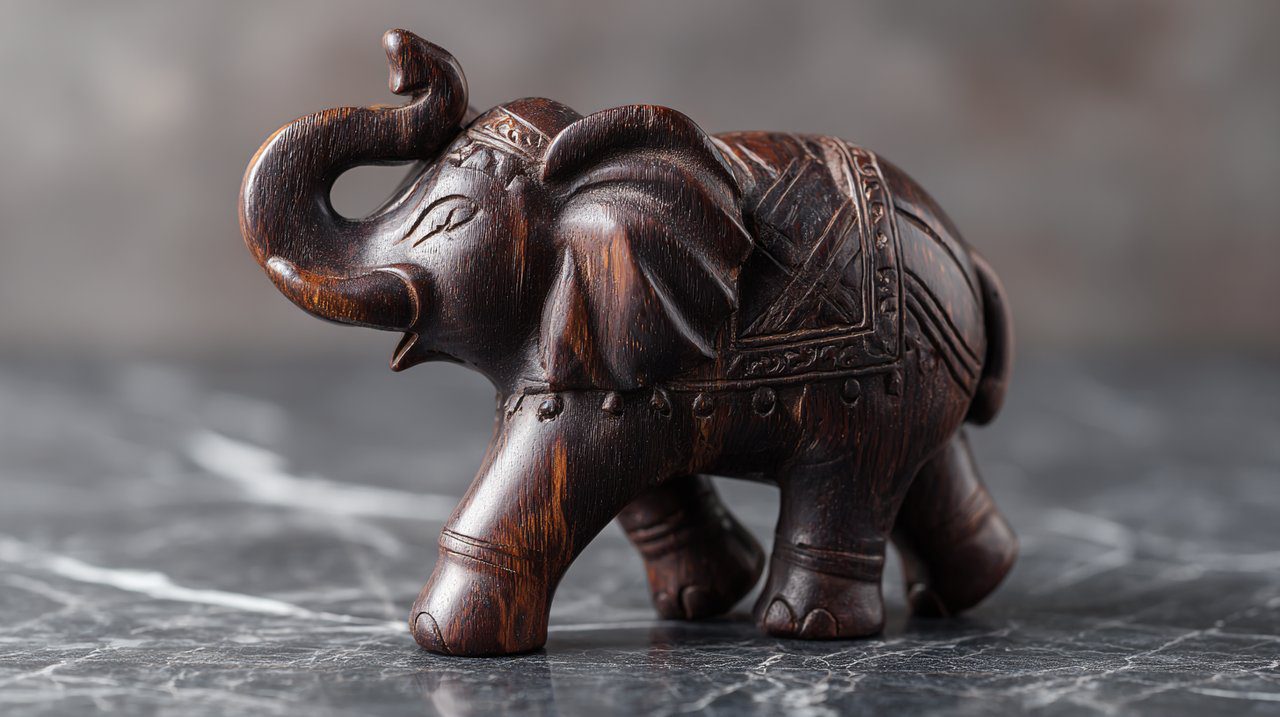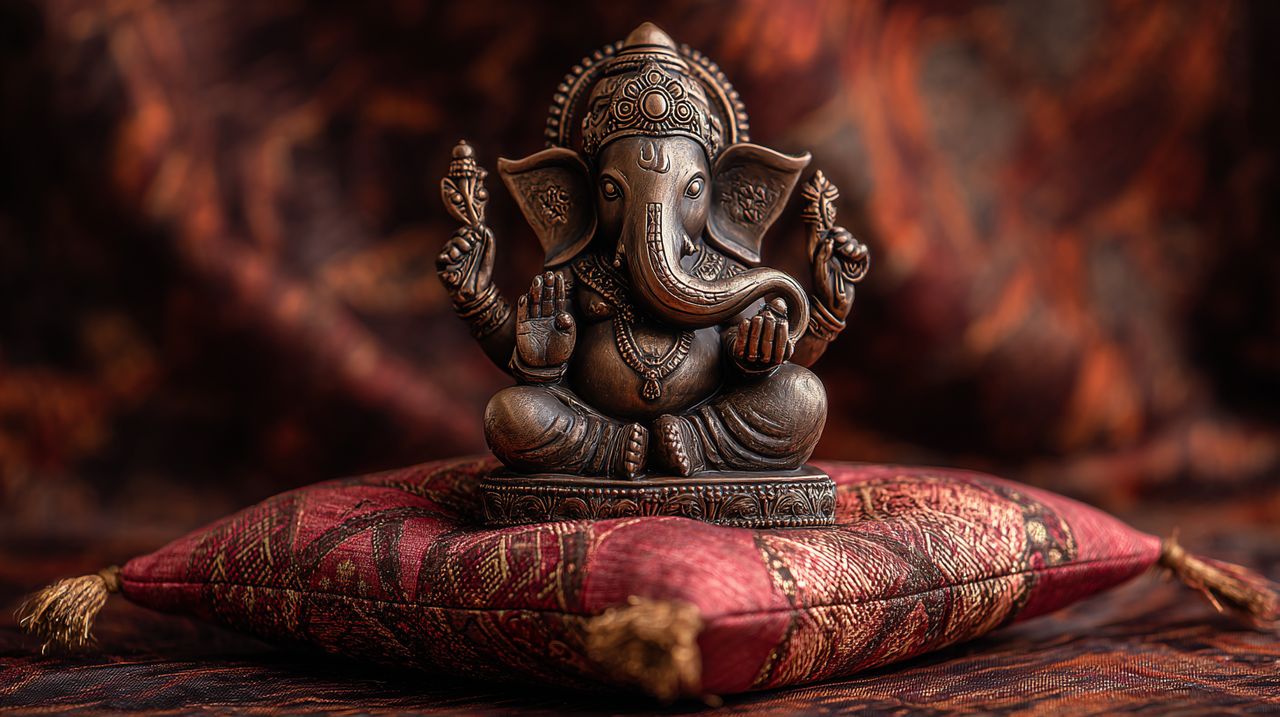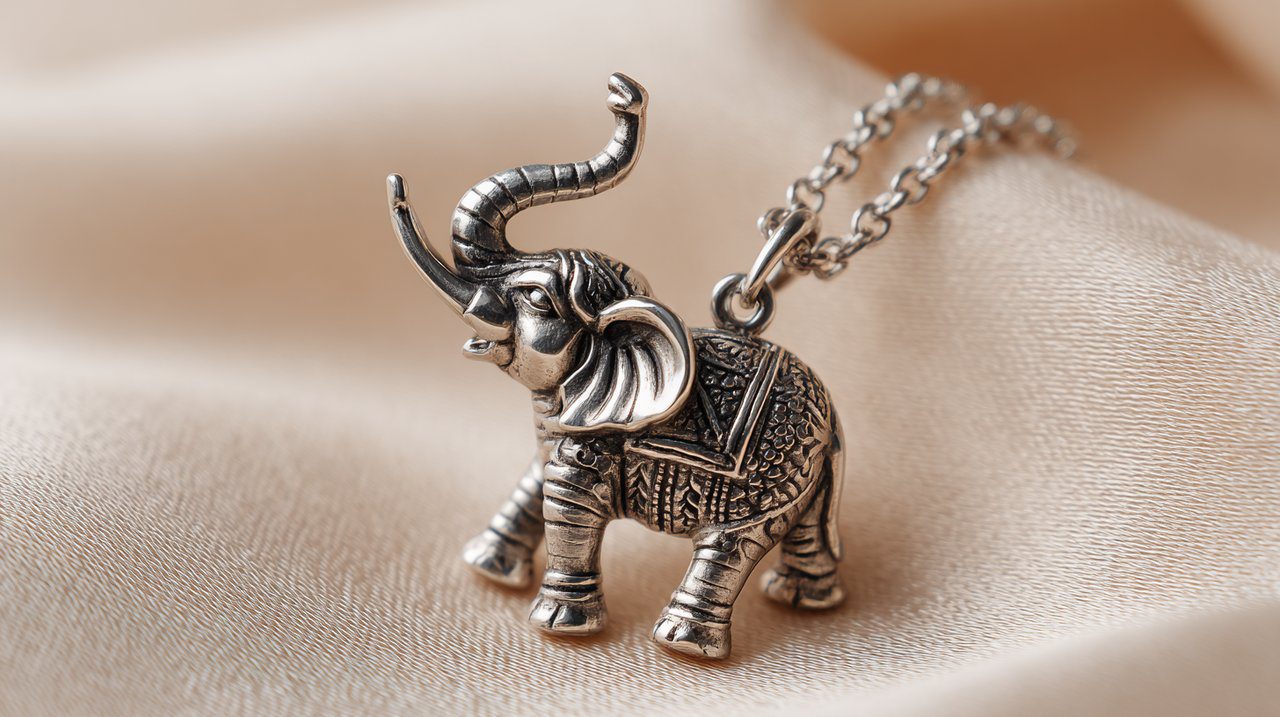Decoding Elephant Symbolism: Strength, Wisdom, and the Power of Positive Suggestion
Why do certain images resonate so deeply within our collective consciousness, transcending borders and belief systems? It’s a fascinating question, isn’t it?
The elephant, with its imposing presence and gentle demeanor, stands as one of humanity’s most universally revered symbols. From ancient myths to modern adornments, these magnificent creatures evoke a powerful blend of awe and affection.
But what exactly is the underlying logic that grants them such profound symbolic weight? Let’s deconstruct the multifaceted meanings these gentle giants carry, not as magic, but as a sophisticated system of environmental psychology and positive suggestion.
The Elephant’s Blueprint: Nature’s Lessons in Symbolism
It’s quite remarkable how the elephant’s physical attributes naturally lend themselves to such powerful symbolic interpretations. Their sheer size, strength, and longevity offer immediate visual cues that our minds intuitively connect with certain concepts.
This forms the basis of much animal symbolism, allowing us to draw profound lessons from the natural world.
Strength and Stability: An elephant’s immense physical power and unyielding gait make it a natural emblem of strength, stability, and unwavering resolve. It serves as a powerful reminder of inner fortitude, especially during challenging times.
Wisdom and Intelligence: With their long memories and complex social structures, elephants are widely recognized for their profound wisdom and intelligence. They beautifully embody accumulated knowledge and thoughtful decision-making.
Longevity and Good Fortune: Given their impressive lifespans, elephants naturally symbolize longevity, endurance, and a life well-lived. Across many cultures, they are also seen as harbingers of good luck and prosperity, connecting them to a positive future.
This broad symbolic framework isn’t arbitrary; it’s a direct reflection of observable traits interpreted through a cultural lens. Essentially, the elephant becomes a powerful visual reminder of these very qualities we admire and aspire to cultivate within ourselves.

Sacred Echoes: Elephants in Spiritual Frameworks
Beyond general cultural reverence, elephants hold deeply sacred positions in numerous spiritual and religious frameworks. Here, their symbolic weight often transcends the purely physical, touching upon divine attributes and spiritual journeys.
Understanding ancient elephant symbolism in these contexts reveals how deeply observing nature can inform spiritual philosophy, offering us profound insights into human consciousness and belief.
Buddhist Path: Purity and Inner Discipline
In Buddhism, the elephant is a particularly potent symbol, especially the rare and sacred white elephant. It represents far more than just physical power; it speaks to our internal landscapes.
Mental Strength: The untamed mind is often likened to a wild elephant—powerful but uncontrolled. However, a mind disciplined through meditation transforms into a powerful, controlled sacred elephant, capable of great purpose and focus.
Purity and Wisdom: The white elephant is especially significant. It symbolizes purity, wisdom, and the majesty of the Dharma. Legend states Queen Maya, Buddha’s mother, dreamt of a white elephant entering her side, signifying his pure conception. It embodies the patience, steadfastness, and boundless compassion of a Bodhisattva.
This connection beautifully illustrates how nature’s observable traits are elevated into profound spiritual metaphors, teaching us about self-mastery and inner peace.
Hindu Pantheon: Abundance and Obstacle Removal
In Hinduism, elephants are intrinsically linked with key deities and concepts. Their presence often signifies auspicious beginnings and divine blessings, acting as powerful conduits for positive energy.
Ganesha: The elephant-headed god Ganesha is perhaps the most beloved, revered as the remover of obstacles, god of wisdom, and patron of arts and sciences. His image invites success and clear paths, making him a cherished figure in daily life.
Lakshmi: White elephants are often depicted anointing Lakshmi, the goddess of wealth and prosperity. This symbolizes royal power, abundance, and fertility, connecting the elephant to earthly well-being and divine favor. It’s a reminder of the universe’s abundant nature.
These associations highlight the elephant’s role as a conductor of divine blessings. The reverence stems from their perceived ability to embody these powerful, positive forces, guiding us towards prosperity and wisdom.

Wearing Wisdom: The Psychology of Symbolic Adornment
The desire to carry these powerful meanings with us has naturally led to the widespread use of elephant imagery in personal adornment. An elephant necklace meaning, for instance, is far more than mere decoration; it acts as a deeply personal psychological anchor.
Wearing an elephant charm or a piece of elephant jewelry meaning allows you to consciously engage with these symbols. It creates a constant, tangible reminder of the qualities you wish to cultivate within yourself.
Embrace Inner Strength: It serves as a constant visual reminder of your own resilience and inherent ability to overcome challenges. It’s like carrying a small, powerful pep talk with you.
Cultivate Wisdom: It encourages thoughtful action and helps you connect more deeply to your innate intelligence and intuition. It’s a nudge towards mindful decision-making.
Attract Good Fortune: For many, it’s a talisman believed to draw in prosperity and positive energy. This isn’t about magic, but about the power of positive suggestion and aligning your mindset with abundance.
When you consciously choose to wear such a symbol, you are actively affirming the qualities it represents within yourself and subtly influencing your own mindset. That’s the real power at play here.
Subtle Gestures: Decoding Elephant Postures
Even specific postures or features of an elephant can carry nuanced meanings, adding fascinating layers to its symbolism. These details allow for a more personalized connection, enabling you to choose an elephant representation that aligns precisely with your specific aspirations.

Elephant Trunk Up Symbolism: An elephant with its trunk raised high is widely considered a powerful symbol of good luck, prosperity, and victory. The trunk is seen as a conduit for positive energy, showering blessings upon the wearer or owner. It’s a gesture of exuberance and triumph.
Trunk Down: While less common in general positive symbology, a trunk down can represent longevity, fertility, and groundedness. It signifies the elephant’s ability to draw water and nurture the earth, connecting to deep roots and stability. It’s a quieter, more introspective power.
These subtle differences in depiction allow for a more precise alignment between the symbol and your personal intention. It’s a testament to the depth of symbolic language and how we can engage with it on a personal level.
Cultivating Elephant Qualities: A Modern Practice
Understanding the wisdom of elephants symbolism is merely the first step. The true power lies in how we integrate this knowledge into our daily lives. Think of the elephant not just as a symbol, but as an archetype—a pattern of behavior and attributes we can consciously emulate.
The elephant reminds us that true strength is often found in patience, stability, and a deep connection to our community.
To actively cultivate this ‘elephant energy’ is to engage in a form of self-directed environmental psychology. You are consciously choosing to embody its attributes, shaping your own inner landscape.
Embrace Steadfastness: When faced with challenges, channel the elephant’s unyielding nature. Approach problems with persistence rather than impulsive reactions. This builds true resilience.
Nurture Community: Elephants live in strong, supportive family units, demonstrating incredible loyalty. Reflect on your own relationships and how you can foster deeper connections and mutual support. Connection is key.
Seek Wisdom: Like the elephant’s long memory, learn from past experiences and approach new situations with thoughtful consideration. Take time to process and understand before acting.
Engaging with the elephant power animal in this way transforms passive appreciation into active self-development. It’s a powerful method to consciously anchor yourself to positive attributes, allowing ancient wisdom to guide modern living.
By exploring what elephants symbolize, we uncover not just ancient beliefs, but also timeless principles of strength, wisdom, and connection that remain profoundly relevant. Whether through a cherished piece of jewelry or a conscious reflection on their powerful traits, the elephant offers a constant source of inspiration for navigating life with grace and purpose, reminding us that the wisdom of nature is always within reach.
💡 Frequently Asked Questions
Elephants primarily symbolize strength, stability, wisdom, intelligence, longevity, endurance, and good fortune, drawing these interpretations from their physical attributes and observable traits.
In Buddhism, the white elephant signifies purity, wisdom, and a disciplined mind. In Hinduism, elephants are linked to Ganesha, the remover of obstacles and god of wisdom, and to Lakshmi, symbolizing abundance and prosperity.
An elephant with its trunk raised high is widely seen as a symbol of good luck, prosperity, and victory. A trunk down can represent longevity, fertility, and groundedness, signifying deep roots and stability.
Individuals can cultivate 'elephant energy' by embracing steadfastness and persistence in challenges, nurturing strong community connections, and seeking wisdom through thoughtful consideration and learning from past experiences.







